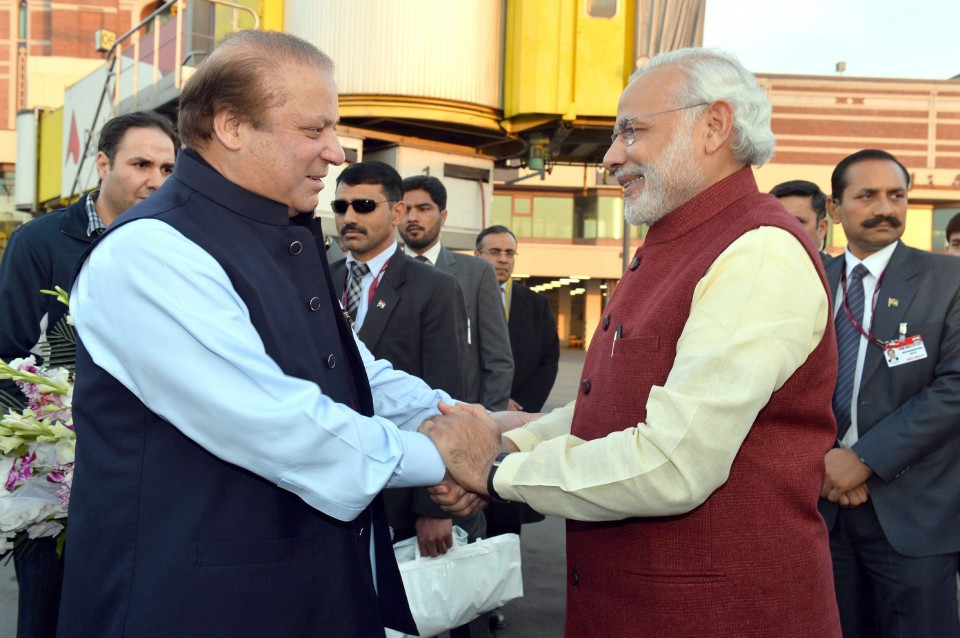Washington Post
Dhruva Jaishankar
 In the wee hours of Sept. 29, Indian special operations forces slipped across the Line of Control (LoC) into Pakistan-administered Kashmir and attacked sites where terrorists had gathered to infiltrate into Indian-held territory. The details of this operation, described as surgical strikes, are hazy, and more will likely emerge. Cross-LoC operations by India are not entirely unprecedented, but the apparent scale of the strikes and public acknowledgment by the Indian Army broke new ground.
In the wee hours of Sept. 29, Indian special operations forces slipped across the Line of Control (LoC) into Pakistan-administered Kashmir and attacked sites where terrorists had gathered to infiltrate into Indian-held territory. The details of this operation, described as surgical strikes, are hazy, and more will likely emerge. Cross-LoC operations by India are not entirely unprecedented, but the apparent scale of the strikes and public acknowledgment by the Indian Army broke new ground.
India’s leaders and the public welcomed the strikes as a justified response to the Sept. 18 attack at Uri in Kashmir in which 19 Indian soldiers were killed. Pakistan has denied that India’s surgical strikes took place, saying only that two of its soldiers were killed in artillery shelling. Nonetheless, the announcement of the strikes by the Indian government will help assuage domestic Indian anger at Pakistan-based terrorism and send a signal to Pakistan. India also seems to have taken steps to minimize military escalation between the two nuclear-armed states by targeting non-military facilities and communicating the limited nature of the operations to the Pakistan army before even going public.
India’s surgical strikes represent part of a continuing turnaround in Indian Prime Minister Narendra Modi’s Pakistan policy. Although expected by many to be a nationalist hawk when he was first elected, Modi invested considerable energy and capital in engaging Pakistan during his first two years in office. Among other things, he invited his Pakistani counterpart, Nawaz Sharif, to his inauguration ceremony in 2014, and last year visited Sharif’s home in Pakistan on an unscheduled stopover.
But India’s attitude began to harden in July, when Pakistan tried to gain diplomatic and political mileage out of popular protests in Indian-administered Kashmir. Modi responded by refusing to condemn a devastating terrorist attack in the Pakistani city of Quetta in August. For the first time, he also raised Pakistani human rights abuses in Balochistan and Pakistan-administered Kashmir in his annual Independence Day speech on Aug. 15. The Uri attack only set back relations further, hardening Indian resolve.
In the days that followed the Uri attack, Indian political, military and diplomatic leaders deliberated various options. In his first speech after the attack, Modi gave a firm but measured response and made a point to distinguish between Pakistan’s people and its leadership. India’s foreign minister, Sushma Swaraj, followed up with a sharp speech at the United Nations, which framed Pakistan-based terrorism as a global challenge — with links to recent attacks in New York, Brussels, Kabul and Dhaka — and stepped up Indian rhetoric on Pakistani human rights abuses in Balochistan.
India’s diplomatic efforts over the years and recent days seems to have helped put pressure on Pakistan. The U.S. response to the latest conflagration has been far more supportive of India than in the past. Saudi Arabia and other Gulf Arab states broke from past precedence and unequivocally condemned the Uri attacks. And Bhutan, Afghanistan and Bangladesh joined India in boycotting an upcoming summit of the South Asian Association of Regional Cooperation (SAARC), which was to have been held in Pakistan next month. On the other hand, China has continued to back Pakistan while Russia staged military exercises in Pakistan, much to the chagrin of its close defense partner India.
What happens next? Much will depend on how Pakistan chooses to respond to the Indian strikes. If Pakistan’s leadership were to take meaningful steps to stem cross-border infiltration, the Indian strikes and overwhelming international condemnation of Pakistan would have achieved their purpose. But given that another attack took place on an Indian military facility on Sunday in Baramulla, the immediate signs are not encouraging.
There are further reasons to be doubtful. The Pakistani army remains the predominant force in Pakistani national security. The abandonment of its longstanding policy of supporting militancy and terrorism would risk its privileged position in Pakistani politics. Moreover, Pakistan has been emboldened by unprecedented levels of economic and political support from China. The massive increase in Chinese investment to Pakistan as part of its One Belt, One Road initiative and a greater degree of political support from Beijing mean that Islamabad may now be less susceptible to international pressure to abandon its support for terrorism.



